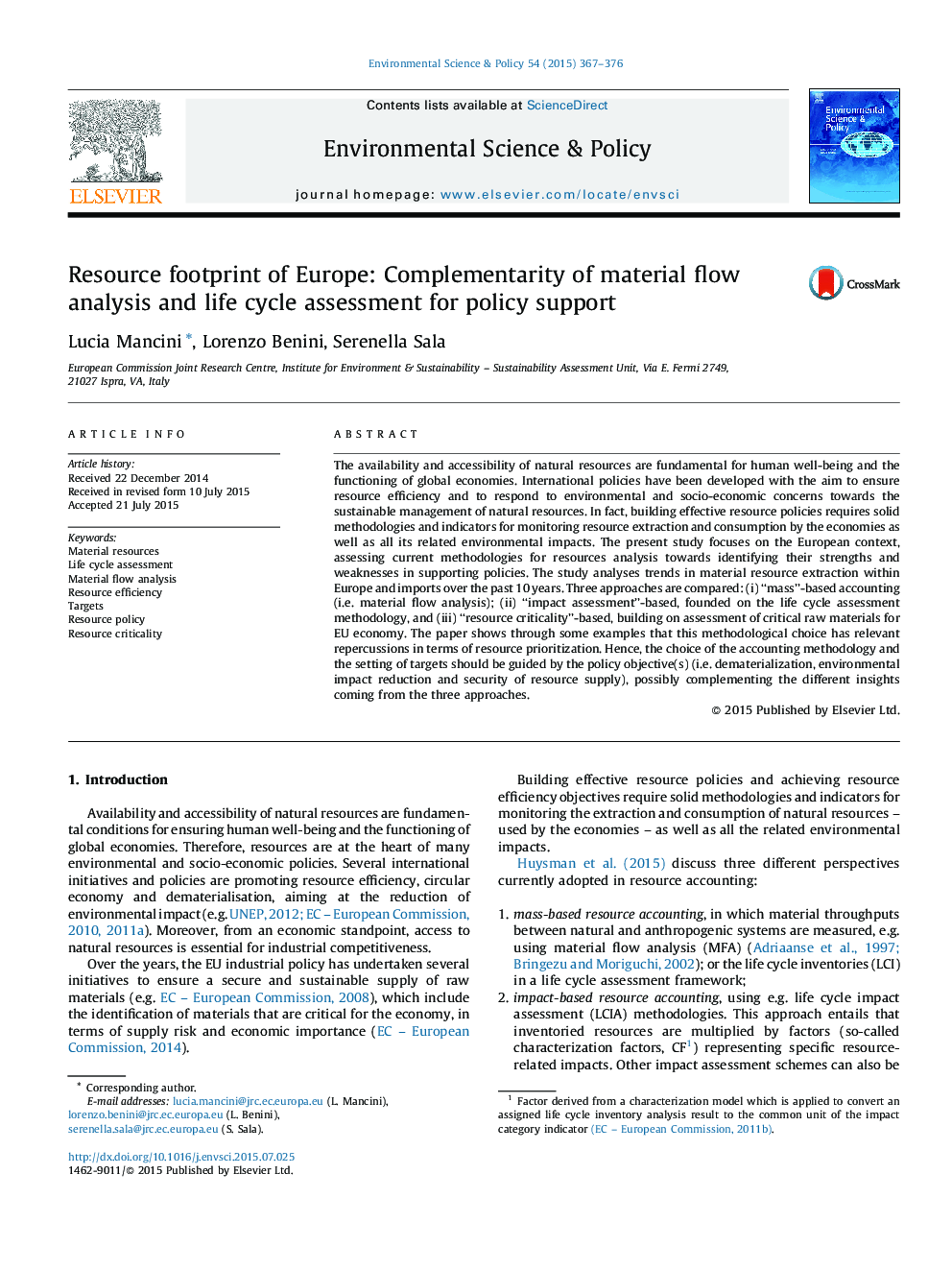| Article ID | Journal | Published Year | Pages | File Type |
|---|---|---|---|---|
| 7467356 | Environmental Science & Policy | 2015 | 10 Pages |
Abstract
The availability and accessibility of natural resources are fundamental for human well-being and the functioning of global economies. International policies have been developed with the aim to ensure resource efficiency and to respond to environmental and socio-economic concerns towards the sustainable management of natural resources. In fact, building effective resource policies requires solid methodologies and indicators for monitoring resource extraction and consumption by the economies as well as all its related environmental impacts. The present study focuses on the European context, assessing current methodologies for resources analysis towards identifying their strengths and weaknesses in supporting policies. The study analyses trends in material resource extraction within Europe and imports over the past 10 years. Three approaches are compared: (i) “mass”-based accounting (i.e. material flow analysis); (ii) “impact assessment”-based, founded on the life cycle assessment methodology, and (iii) “resource criticality”-based, building on assessment of critical raw materials for EU economy. The paper shows through some examples that this methodological choice has relevant repercussions in terms of resource prioritization. Hence, the choice of the accounting methodology and the setting of targets should be guided by the policy objective(s) (i.e. dematerialization, environmental impact reduction and security of resource supply), possibly complementing the different insights coming from the three approaches.
Keywords
Related Topics
Physical Sciences and Engineering
Energy
Renewable Energy, Sustainability and the Environment
Authors
Lucia Mancini, Lorenzo Benini, Serenella Sala,
